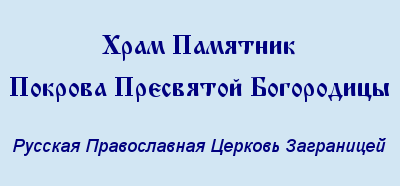Dear Brothers and Sisters,
Congratulations with the feast of the Resurrection of the Lord, with the beginning of the Lenten Triodion, as well as with the sorrowful feast of the New-Martyrs and Confessors of the Russian Church!
Today let’s briefly discuss the Holy Prophet of God Micah. Micah lived and preached at about the same time as did the Holy Prophets Amos and Hosea, that is in the eighth century B. C., when both the Northern and Southern Kingdoms continued to exist, but the Assyrian Empire was rapidly expanding. Micah, like Amos, was from the Judean countryside, but he preached not in Israel, but in his own native Judea. He left us a book that contains seven short chapters.
This book can be divided into four main parts. In the first and third parts, the Holy Prophet of God Micah foretells the destruction of Samaria, the capital of the Northern Kingdom, as well as of Jerusalem, the capital of the Southern Kingdom. He denounces the Jews (especially the rich and powerful, the priests, and the prophets) for offending the poor. He also denounces the people for idolatry, for a superficial faith, for a confident belief in salvation despite a sinful lifestyle. The words spoken against Jerusalem are dreadful and must have shocked the Jews: “Therefore shall Zion (the hill on which Jerusalem stands) for your sake be plowed as a field, and Jerusalem shall become heaps, and the mountain of the house as the high places of the forest” (Micah 3: 12).
The second and fourth parts of the book are, on the contrary, full of hope for the future and speak much about the coming of the Messiah. In the fifth chapter, we read the following words which are quoted by the Evangelist Matthew as a prophecy of the birth of the Saviour in Bethlehem: “But thou, Bethlehem Ephratah, though thou be little among the thousands of Judah, yet out of thee shall he come forth unto me that is to be ruler in Israel; whose goings forth have been from of old, from everlasting” (Micah 5: 2).
Today, on the feast of all the New-Martyrs who suffered under the Communist regime, the prophetic and accusatory words of the Prophet Micah, as is the case with the words of all the other Old Testament prophets, are very current and appropriate. Up to our own days, we continue to see the same iniquities about which Micah wrote and which were prevalent in the Russian Empire before the revolution. Therefore, let’s give ear to today’s Gospel parable as well as the following words of the prophet and correct our ways: “O man, what is good; and what doth the Lord require of thee, but to do justly, and to love mercy, and to walk humbly with thy God?” (Micah 6: 8).
priest Alexis







